Archive 2024
Database Query
| News list 2024 |
|---|
“We must move away from silo thinking” Ecological crises such as biodiversity loss, climate change and food security are interconnected and must be tackled in a coordinated way. This is one of the core statements of the Nexus Assessment Report published by IPBES. Mehr 2024-12-17 Stefan Stöcklin |
Roland Tormey workshop - Teaching at the Faculty of Science (MNF)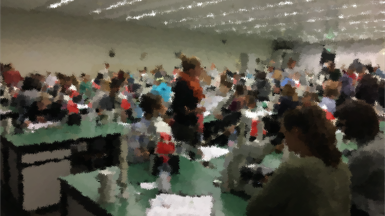 In late November, the MNF Teaching Hub hosted a successful workshop featuring Roland Tormey, head of Teaching Support at EPFL and a leading expert in active learning and engagement in university teaching. Mehr 2024-12-10 Sara Petchey |
Walk This Way: How Neanderthals and Bipedalism Define Our Past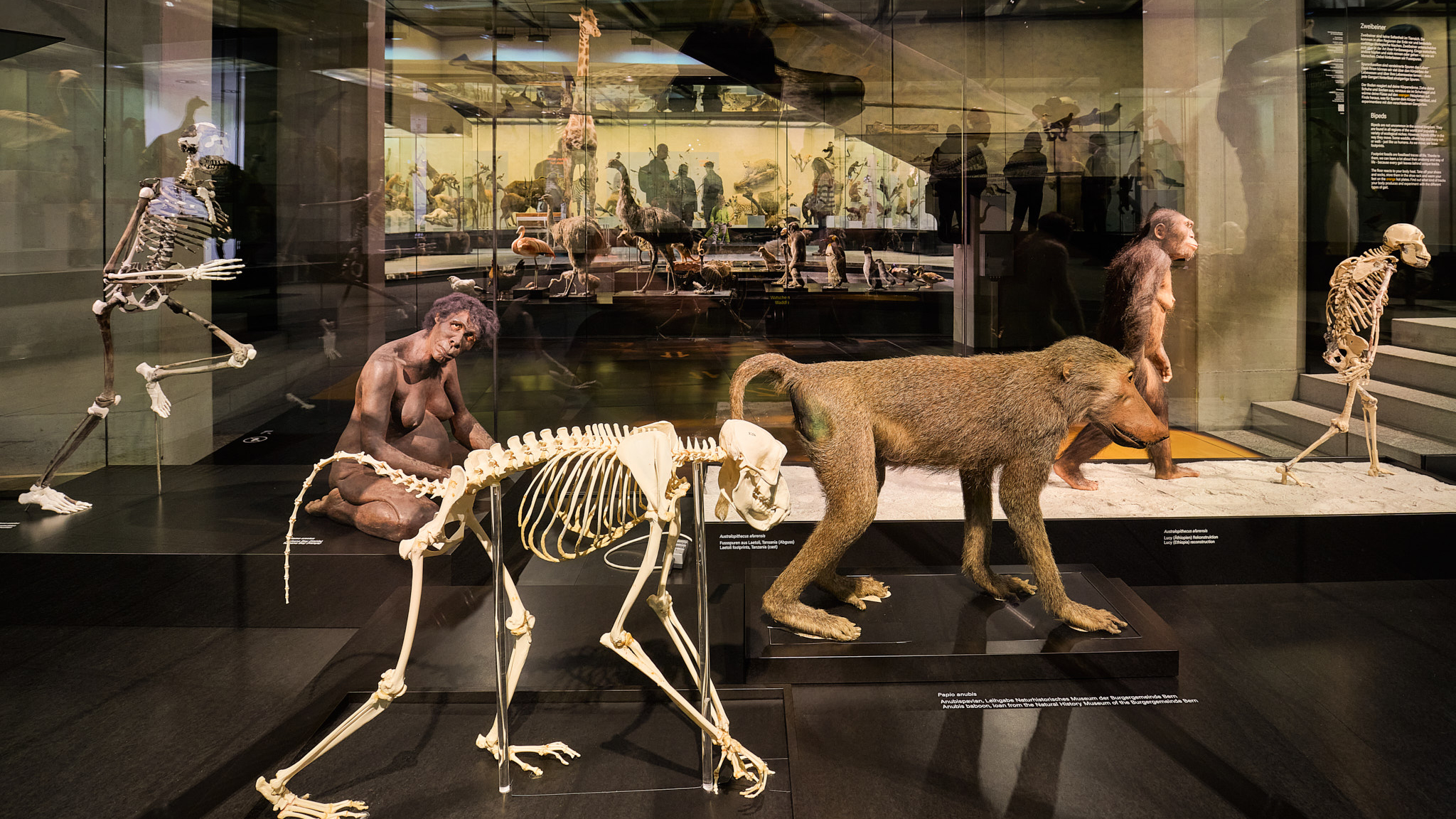 Das Naturhistorische Museum der Universität Zürich wird um anthropologische Inhalte erweitert: Neu in der Dauerausstellung zu sehen sind die Themen «Die Eiszeit, die Neandertaler und wir» sowie die unterschiedlichen Fortbewegungsarten auf zwei Beinen. Mehr 2024-12-08 |
UZH Collaborates with NASA JPL to Pioneer Advanced Mars Science Helicopter Researchers at UZH are working on drone technology that will help to explore Mars: the Robotics and Perception Group at UZH is collaborating with NASA Jet Propulsion Laboratory (JPL) and focusing on the 2030 Mars Science Helicopter mission. A representative from NASA JPL is currently visiting Zurich. Mehr 2024-12-04 UZH Communications |
More Obligations for Uber & Co. Digital platforms arrange jobs at short notice and promise people the chance to work independently at their own pace. But what many of these digital gig workers really need are steady employment conditions. Mehr 2024-11-26 Roger Nickl; Translation by Michael Jackson |
High altitude dilemmas: Is GIUZ ready to reduce its air travel for a more sustainable academia? A master's thesis investigated the willingness of the staff of the Department of Geography to implement measures to reduce air miles and the impact on greenhouse gas emissions. The result: There is no easy way forward to reduce academic air travel. The thesis was awarded the semester prize by the Faculty of Science, UZH. The study has now been published in Environmental Research Communications. Mehr 2024-11-25 Rocco Bagutti |
“Genetic Time Machine” Reveals Complex Chimpanzee Cultures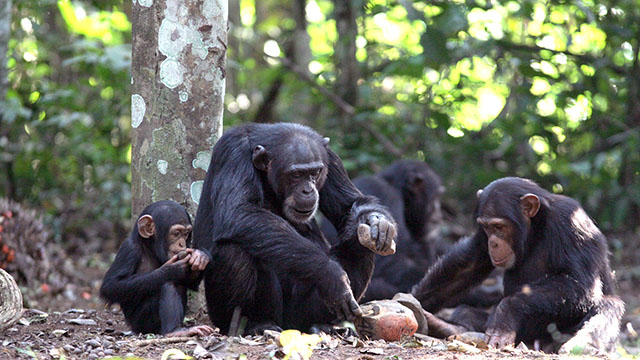 Chimpanzees are known for their remarkable intelligence and use of tools, but could their cultures also evolve over time like human cultures? A new study suggests that some of their most advanced behaviors may have been passed down and refined through generations. Mehr 2024-11-20 |
Grosszügige Spende zur Forschung über Gewalt an Frauen Die UZH kann dank einer grosszügigen Spende der Irene M. Staehelin-Stiftung die Forschung über Gewalt an Frauen und Diskriminierung ausbauen. Geplant sind zwei Professuren und ein Forschungszentrum. Mehr 2024-11-18 UZH Kommunikation |
The calming side of glutamate: retinal inhibition through a classic excitatory neurotransmitter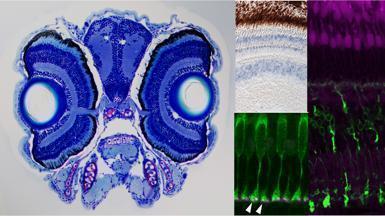 In textbooks glutamate is described as the quintessential excitatory neurotransmitter of the brain. Now an inhibitory action of glutamate, mediated by a coupled transporter/anion channel protein, has been revealed in the retina with an impact on vision. Mehr 2024-11-06 Prof. Stephan Neuhauss |
Similarities in Brain Development Between Marmosets and Humans In common marmosets, the brain regions that process social interactions develop very slowly, extending until early adulthood, like in humans. During this time, all group members are involved in raising the infants, which contributes to the species’ strong socio-cognitive skills. Mehr 2024-10-29 |
When virology meets chemistry – Stepwise viral morphogenesis revealed by dual-color click chemistry Viruses carry nucleic acids and proteins between cells and organisms, and give rise to vast amounts of viral proteins and genomes in infected cells. Yet, it is still largely unknown how viral particles are assemble. Gomez-Gonzalez et al. visualize how viral proteins and genomes coalesce and give rise to adenovirus, an abundant human pathogen and important gene therapy and vaccination vector. Mehr 2024-10-25 Professor Urs Greber |
Plant Diversity Enhances Soil Carbon Retention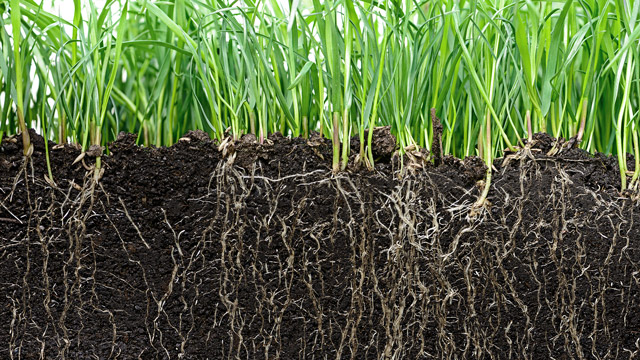 A new study shows that increasing plant diversity in agriculture can be used to improve the carbon sequestration potential of agricultural soils. As the agricultural sector strives to reduce its carbon footprint, promoting biodiversity in agricultural practices could be the key to more sustainable and climate-friendly food production systems. Mehr 2024-10-23 |
Rapidly Increasing Industrial Activities in the Arctic More than 800,000 km2 of the Arctic were affected by human activity in 2013, according to an analysis of satellite-derived data on artificial light at night. On average, 85% of the light-polluted areas are due to industrial activities rather than urban development. This is crucial for sustainable development and nature conservation. Mehr 2024-10-21 |
20 Years of Business Chemistry - a success story The course business chemistry is unique in Switzerland and was introduced at UZH in the fall semester of 2004 by Prof. Stefan Seeger. It promotes the training of scientific managers who can solve business-related problems using an analytical mindset. Mehr 2024-10-17 Irène Studer-Rohr |
Reducing Herbivore Damage Using Biodiversity Instead of Insecticide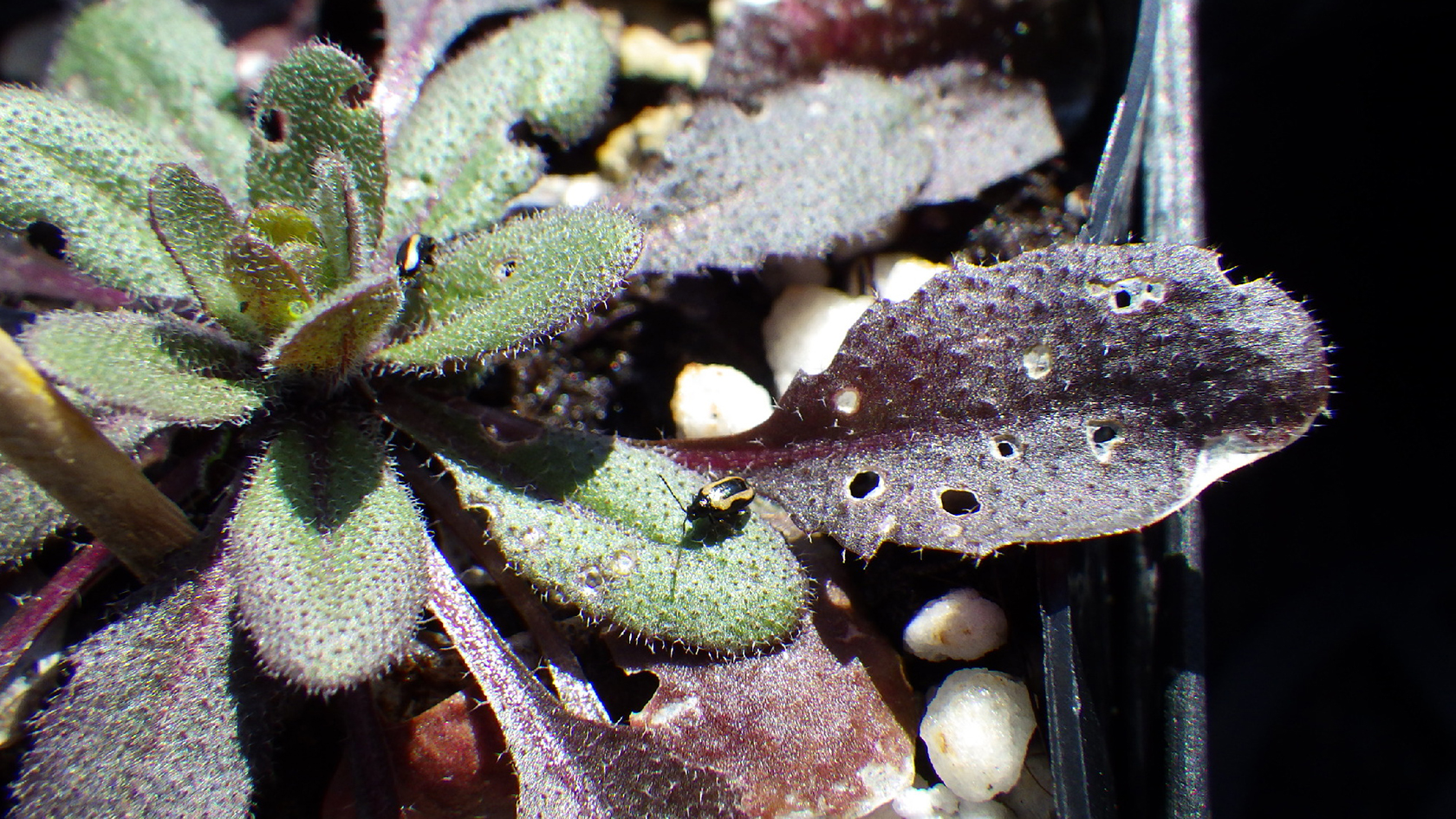 Pesticides aren’t always necessary: researchers at the University of Zurich have conducted a comprehensive field study showing that damage from herbivores can be reduced by using biodiversity within a plant species. Mehr 2024-10-06 |
UZH stärkt ihre Luft- und Raumfahrtforschung im Innovationspark Zürich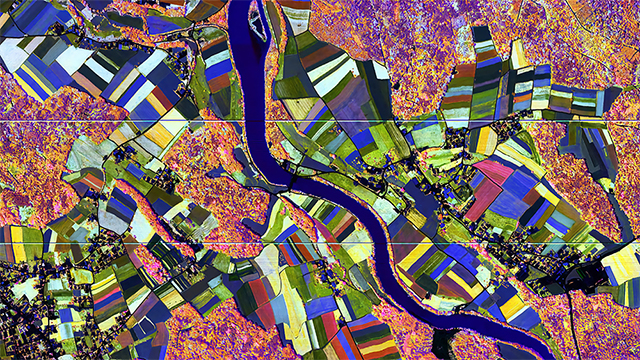_Remote%20Sensing%20Laboratories,%20UZH%20Kopie.jpg) Mit interdisziplinärer Forschungsstärke und einem internationalen Netzwerk leistet der UZH Space Hub bedeutende Beiträge in Fernerkundung, Astrophysik, Space Life Sciences oder Drohnenforschung. Der neue Standort im Innovationspark Zürich bietet die Chance, ein einzigartiges Weltraum-Ökosystem aufzubauen. Mehr 2024-09-23 |
Plant diversity enhances ecosystem multifunctionality via multitrophic diversity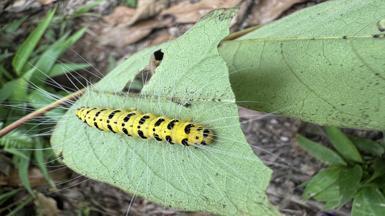 An international research team has shown that, in both forest and grassland ecosystems, the association between multitrophic diversity and multifunctionality was stronger than the relationship between the diversity of individual trophic groups and multifunctionality. Prof. Bernhard Schmid from the University of Zürich is part of the research team and senior author of the study. Mehr 2024-09-09 Bernhard Schmid |
«Wenn wir Biodiversität verlieren, verlieren wir Produktivität» Von der Buche bis zum Erdmännchen: Im «Talk im Turm» beleuchteten UZH-Forschende die Gefahren einer sinkenden Biodiversität in der Schweiz und in der Kalahari-Wüste. Mehr 2024-09-09 Carole Scheidegger |
Art and Science at Science Pavilion UZH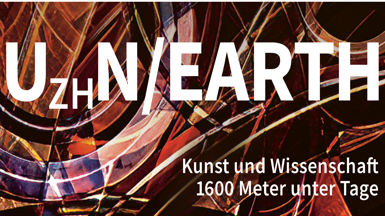 The new exhibiton "U(ZH)N/EARTH - Art and Science 1600 meters below ground" at Science Pavilion UZH combines the search for the invisible with the beauty of art. Mehr 2024-09-04 Ilaria Brunetti |
Ancient Sea Cow Attacked by Multiple Predators Remarkable fossil evidence of an ancient sea cow being preyed upon by a crocodile and a shark offers fresh insights into the predation tactics and food chain dynamics of millions of years ago. Mehr 2024-08-28 |
Life in Space A space mission called LIFE will survey planets beyond our solar system – with the specific aim of finding out if they could sustain life. Researchers from the University of Zurich made use of the Earth. Mehr 2024-08-27 Text: Santina Russo, Translation: Michael Jackson |
Kaffee unter Bäumen Kaffee kann ökologisch nachhaltig und profitabel angebaut werden. Das zeigt die Forschung der Erdsystemwissenschaftlerin Maria J. Santos. Der Schlüssel dazu: die Kombination von Kaffeepflanzen und Bäumen. Mehr 2024-08-25 Stefan Stöcklin |
Colorful Traits in Primates Ease Tensions Between Groups Primate ornamentation plays a crucial role in communication not only within social groups but also between them, according to a new study. The traits may help reduce intergroup aggression by enabling quick assessments of potential rivals. Mehr 2024-08-22 |
BBC Podcast "The Conversation" with Prof. Marta Manser as Guest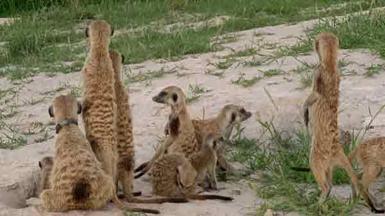 Prof. Marta Manser speaks at the BBC show "The Conversation" about meerkat vocalization, social structures, and group coordination. Mehr 2024-08-05 IEU |
Using Small Black Holes To Detect Big Black Holes An international team of astrophysicists with participation of the University of Zurich proposes a novel method to detect pairs of the biggest black holes found at the centers of galaxies by analyzing gravitational waves generated by binaries of nearby small stellar black holes. Mehr 2024-08-04 |
"Almost a universe unto itself" Leigh Johnson is a Verena Meyer Visiting Professor at GIUZ in the academic year of 2023/2024. She talks about her research and teaching, why she chose GIUZ for her sabbatical and what she will miss when she leaves Zurich. Mehr 2024-07-31 Christian Berndt, Leigh Johnson |
Inheriting the Ability to Adapt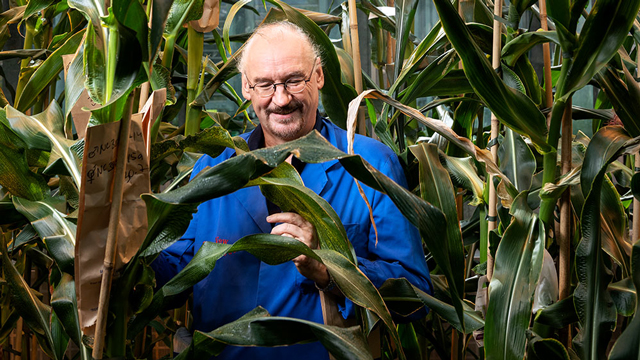 Genetic diversity enables plants to adapt. Research conducted by plant geneticist Ueli Grossniklaus on the epigenetic inheritance of traits is opening up new opportunities for breeding crops. Mehr 2024-07-15 Text: Roger Nickl Translation: Meg Züblin |
XENONnT measures signals from solar neutrinos XENONnT collaboration announced the first measurement of low-energy nuclear recoils from neutrinos produced in nuclear reactions inside the sun, particularly those involving the element boron. UZH Professor Laura Baudis and her group are involved in the XENONnT experiment with leading contributions to the detector and the analysis. Mehr 2024-07-12 Laura Baudis |
Nature’s Sleeping Beauties According to evolutionary biologist Andreas Wagner, nature tirelessly produces new variations, many of which are not utilized. But when environmental conditions change, these dormant new talents spring into action. Mehr 2024-07-09 Text: Stefan Stöcklin, Translation: Michael Craig |
Students Help Shed Light on Prehistoric Marine Giants Paleontology students at UZH had the opportunity to contribute to their professor’s publication on extinct marine megafauna. Mehr 2024-07-08 Text: Nicole Bruggmann, Translation: Philip Isler |
“Biodiversity is our life insurance”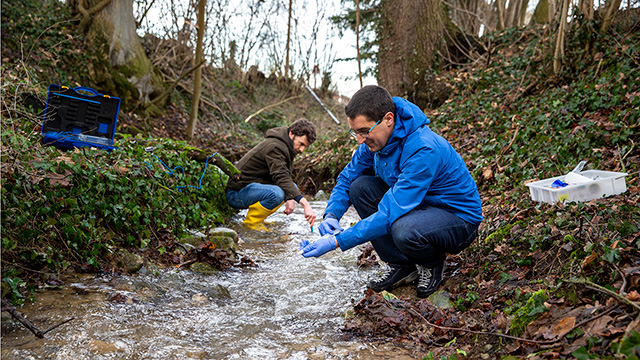 Ecosystems are more stable and productive when they contain more species. This has been demonstrated impressively by researchers from the URPP Global Change and Biodiversity. The successful program is committed to ensuring that the value of biodiversity is better understood and appreciated in society. Mehr 2024-07-02 Text: Stefan Stöcklin, Translation: Michael Jackson |
“Biodiversity is our life insurance”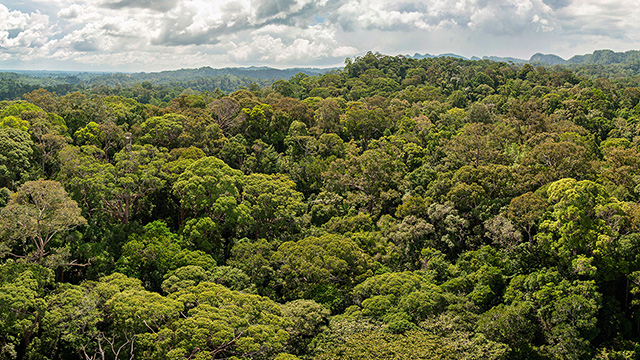 Ecosystems are more stable and productive when they contain more species. This has been demonstrated impressively by researchers from the URPP Global Change and Biodiversity. The successful program is committed to ensuring that the value of biodiversity is better understood and appreciated in society. Mehr 2024-07-02 Text: Stefan Stöcklin, Translation: Michael Jackson |
ARRAKIHS surpasses the Payload Phase A in record time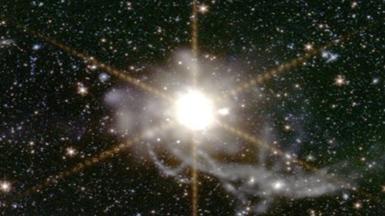 The European Space Agency (ESA) space mission ARRAKIHS (Analysis of Resolved Remnants of Accreted galaxies as a Key Instrument for Halo Surveys) reached an important milestone in March: the Instrument Preliminary Requirements Review (iPRR) was successfully passed. Mehr 2024-06-20 Florian Kehl |
“You have to be a champion of failure” Katalin Karikó visited the University of Zurich to accept the Paul Karrer Medal. The Hungarian-born biochemist has faced numerous setbacks in her groundbreaking mRNA research before winning the Nobel Prize in 2023. Mehr 2024-06-20 Carole Scheidegger |
Interaction with Insects Accelerates Plant Evolution A team of researchers at UZH has discovered that plants benefit from a greater variety of interactions with pollinators and herbivores and evolve to be better adapted to different types of soil. Mehr 2024-06-18 |
“Making the catalysts work for us”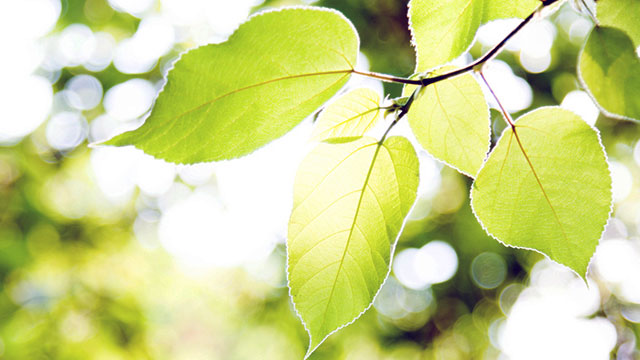 “The scientific strides we’ve made will hopefully allow us to kick-start the long-awaited technology of producing energy from artificial photosynthesis,” says director Greta Patzke in describing what’s been achieved thanks to the URPP LightChEC. Mehr 2024-06-18 Text: Brigitte Blöchlinger, Translation: Philip Isler |
A High-throughput procedure with light microscopy and machine learning quantifies virus infections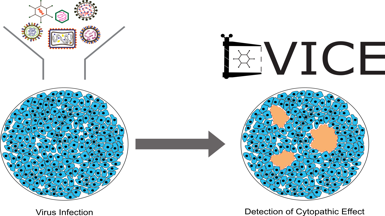 A procedure named ‘detection of virus-induced cytopathic effect (DVICE)’ robustly quantifies virus infection-specific features in a perturbation-low manner allowing for dynamic assessment of chemically fixed and live specimens. DVICE is applicable to clinical samples, and laboratory diagnostics. Mehr 2024-06-17 Professor Urs Greber |
“Climate change and biodiversity are closely connected”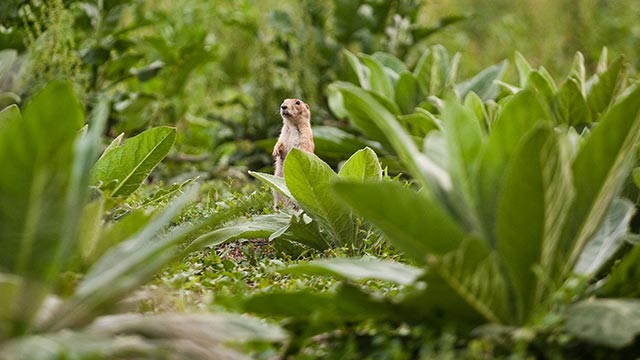 The third World Biodiversity Forum (WBF), organised by UZH, is taking place in Davos this week. In this interview, UZH earth system scientists Maria J. Santos and Gabriela Schaepman-Strub explain how biodiversity and climate change influence each other and what needs to be done to overcome the climate and biodiversity crisis. Mehr 2024-06-17 Interview Thomas Gull / Translation Mark Rabinowitz |
“Climate change and biodiversity are closely connected” The third World Biodiversity Forum (WBF), organised by UZH, is taking place in Davos this week. In this interview, UZH earth system scientists Maria J. Santos and Gabriela Schaepman-Strub explain how biodiversity and climate change influence each other and what needs to be done to overcome the climate and biodiversity crisis. Mehr 2024-06-17 Interview Thomas Gull / Translation Mark Rabinowitz |
Measure of niches shows great apes experience the least competition; marmosets and tamarins the mostA team of researchers at the University of Zurich and the University of Cambridge calculated niches of 191 primate species in a seven-dimensional space. They used this to show how primate niches evolved and calculate which groups of primates experience the highest levels of between-species competition. Mehr 2024-06-12 Prof. Dr. Catalina Pimiento Hernandez and Prof. Dr. Kathelijne Koops |
“UZH is a leader in evolutionary biology research” How do organisms and pathogens evolve and adapt to the environment? This was the question that the URPP Evolution in Action sought to address. The program allowed UZH to put its considerable research competence in evolutionary biology to excellent use, says the initiator and former co-director Beat Keller. Mehr 2024-06-12 Interview: Stefan Stöcklin, Translation: Astrid Freuler |
Experience research up close and personal Next week, on Saturday 8 June, the Science and Nature Festival will take place on UZH’s Irchel Campus. Keeping with the spirit of the event’s motto – “Discover | Research | Celebrate Diversity” – visitors can get inspired by the world of science for an entire afternoon. Mehr 2024-05-28 UZH Communications |
Bio-Inspired Cameras and AI Help Drivers Detect Pedestrians and Obstacles Faster Artificial intelligence (AI) combined with a novel bio-inspired camera achieves 100 times faster detection of pedestrians and obstacles than current automotive cameras. The new system can significantly improve the safety of automotive systems and self-driving cars, as UZH researchers show. Mehr 2024-05-27 |
Cultural Networks of Central African Hunter-Gatherers Have Ancient Origin Extensive social networks between hunter-gatherers groups in the Congo Basin existed long before agriculture arrived in the region. This continent-wide interexchange preserved a cultural diversity that evolved thousands of years ago, as UZH researchers show based on musical instruments, vocabulary and genetic data. Mehr 2024-05-26 |
Neue Buchen für den Schweizer Wald Der Klimawandel setzt den hiesigen Buchen zu. Forschende der UZH wollen nun lernen, wie die Buchenwälder von morgen aussehen könnten. Dazu gehen sie experimentell vor und nutzen Spektraldaten, um die Biodiversität der Buchenwälder zu erforschen. Mehr 2024-05-21 Marita Fuchs |
What makes us human? New exhibition at Science Pavilion UZH In our new exhibition we explore what makes us human and the similarities between us and other species. Dive into the current research of the Department of Evolutionary Anthropology. Mehr 2024-05-16 Science Pavilion UZH |
Limited Adaptability Makes Freshwater Bacteria Vulnerable to Climate Change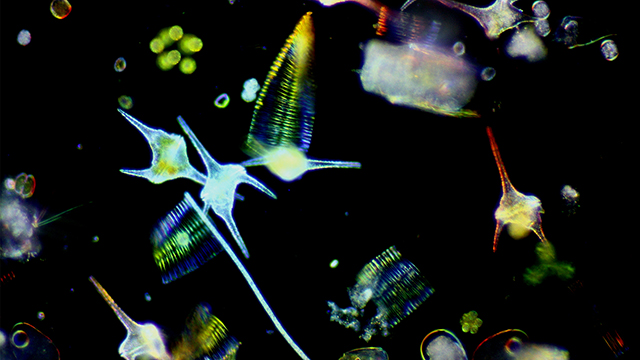 Freshwater bacteria with small genomes frequently undergo prolonged periods of adaptive stagnation. Based on genomic analyses of samples from European lakes, UZH researchers uncovered the surprising evolutionary strategies. Understanding these evolutionary dynamics is key to safeguarding ecosystem services. Mehr 2024-05-07 |
The Roots of the Mapuche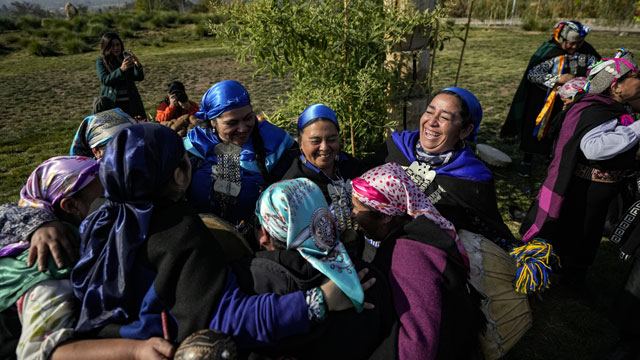 The ancestors of the Mapuche people settled in South America more than 5,000 years ago. For a long time, they lived in relative isolation and in defiance of the Incas and Spanish. A notable study aids our understanding of their genetic history, and that of South America. Mehr 2024-05-06 Text: Stefan Stöcklin, Translation: Jane Catterall |
Fighting Cancer with SMARTdrugs With “SMARTdrugs” a team of researchers from UZH with international partners aims to create a new class of therapies: “radiotheranostics”. These drugs combine diagnostic and therapeutic radionuclides in a supramolecular compound with the purpose of imaging and treating tumors. Mehr 2024-05-01 |
Honorary Doctorate of the Faculty of Science for Prof. Dr. Beate Heinemann The Faculty of Science of the University of Zurich is awarding an honorary doctorate to Prof. Dr. Beate Heinemann for her outstanding scientific achievements in experimental elementary particle physics, her pioneering role in the search for new particles and her associated contributions to the planning of future particle accelerators. Mehr 2024-04-30 KE |
Giving Turtles a Voice For a long time, turtles were regarded as largely voiceless creatures. In his dissertation, Gabriel Jorgewich-Cohen has shown that they definitely do communicate acoustically. The postdoctoral researcher at the UZH Department of Paleontology has been awarded the Prix Schläfli in Biology. Mehr 2024-04-24 Astrid Tomczak-Plewka |
Master’s Program in Biodiversity to Launch in the 2024 Fall Semester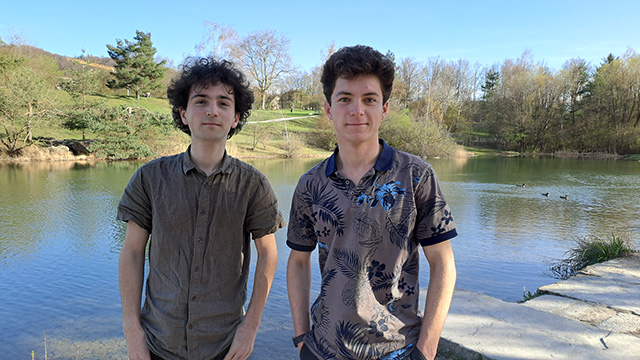 The new Bachelor’s program in biodiversity – the first of its kind in German-speaking countries – launched at UZH last fall. Following its success, with more than 140 students enrolled, the Master’s program in biodiversity will be offered for the first time starting this Fall Semester. Mehr 2024-04-22 Kurt Bodenmüller, UZH Media Officer |
SHiP experiment approved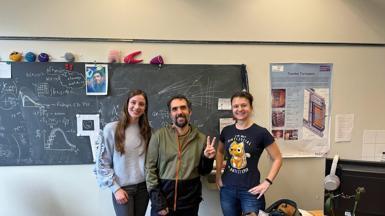 Just over ten years after its initial proposal, the SHiP experiment has been approved by the CERN management to start data taking in the next decade! The SHiP experiment is designed to search for extremely weakly interacting particles by using an incredibly intense beam of protons available at the LHC. Mehr 2024-04-16 Katharina Müller |
Invasive species impacts transcend ecosystem boundaries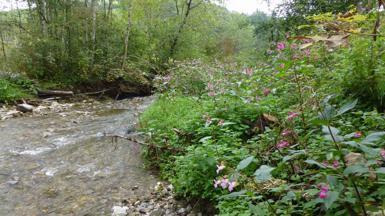 Invasive species have profound impacts on biodiversity. A study led by UZH researchers reveals the impacts of invasive species commonly transcend major ecosystem boundaries, such as the aquatic-terrestrial interface, influencing biodiversity across larger spatial extents than previously recognized. Mehr 2024-04-04 Tianna Peller and Florian Altermatt |
Experience Ice Ages and Climate Change Up Close The new IceAgeCam installation on Felsenegg gives an impressive demonstration of the human influence on climate change. Visitors can immerse themselves in an interactive experience of the changing glacial landscapes. It is the result of an interdisciplinary project involving researchers from UZH, the University of Lausanne and the Zurich University of the Arts. Mehr 2024-03-25 Nathalie Huber |
University Steps up Data Science UZH is responding to the rise of data science by establishing the Department of Mathematical Modeling and Machine Learning. DM3L for short, it combines UZH’s strong basic research in mathematics with practical applications and will offer a new study program from fall 2025. Here are four examples. Mehr 2024-03-25 Stefan Stöcklin |
Birds use valleys and passes to cross the AlpsA team from GIUZ and the Swiss Ornithological Institute studied how migratory birds cross the Swiss Alps for the first time using year-round radar measurements: migration intensities, flight altitudes, speeds and directions were monitored. It turned out that migratory birds use the Alpine valleys and adjacent passes as passages. Mehr 2024-03-21 Simon Hirschhofer |
Ancient Giant Dolphin Discovered in the Amazon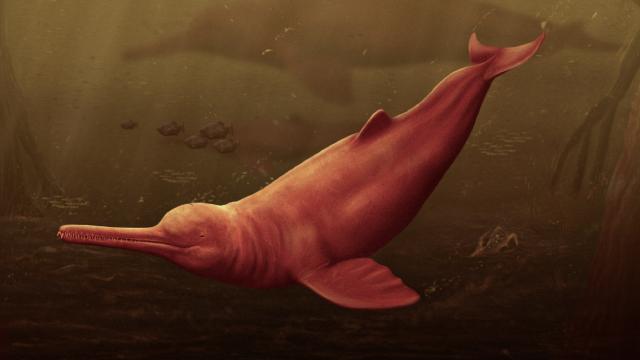 Measuring between 3 to 3.5 meters, 16 million years old: Paleontologists from the University of Zurich have announced the discovery of a new species of freshwater dolphin in the Peruvian Amazon region. Surprisingly, its closest living relatives can be found in the river dolphins of South Asia. Mehr 2024-03-19 |
UZH Opens New Natural History Museum with Four Dinosaurs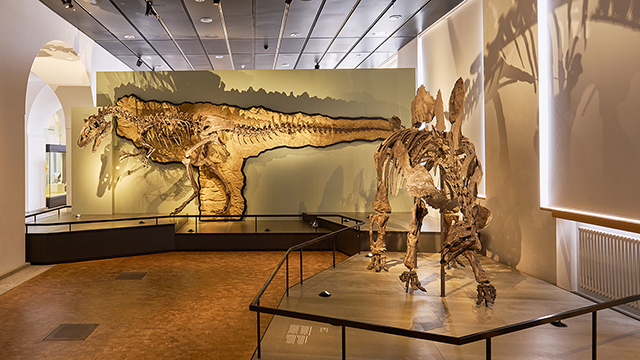 The new Natural History Museum of the University of Zurich brings together zoology, paleontology, anthropology and botany under the same roof. The museum opens with four new dinosaur skeletons and various other additions that shine a light on how evolution and biodiversity have shaped life on our planet. Mehr 2024-03-17 |
Researching in the Wild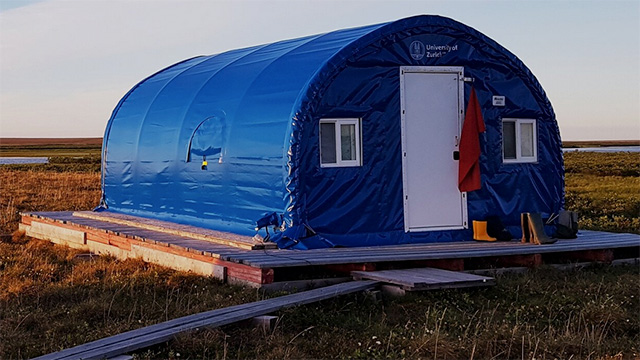 UZH’s Faculty of Science operates research stations in far-flung places, where researchers analyze the effects of climate change or observe mountain chimps and meerkats in their natural environment, among other things. Five of these stations are presented below. Mehr 2024-03-03 Text: Roger Nickl, Translation Philip Isler |
Eons in a Blink: Processes in proteins unchanged for a billion years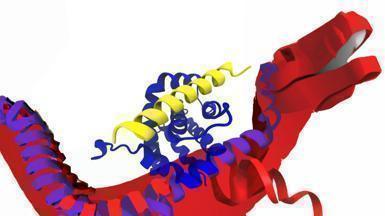 For around four billion years, life on Earth has been developing in a fascinating evolutionary process. But how do proteins, the molecular machines in cells, change over this incredibly long period of time? In a groundbreaking study, researchers at the University of Zurich have unraveled the influence of a billion years of evolution on the pace of these molecular machines. Mehr 2024-02-27 Philipp J. Heckmeier (Postdoctoral Researcher at Hamm Group) |
Earth as a Test Object If a space telescope like LIFE were to observe planet Earth from a distance of around 30 light years, it would find signs of a temperate, habitable world. Physicists at ETH Zurich and the University of Zurich reached this conclusion with the help of observations of our own planet. Mehr 2024-02-26 Corinne Landolt, Gaia Donati |
Can Large Language Models Help Us Combat Online Misinformation?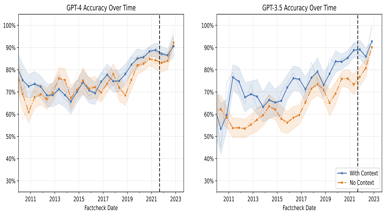 As the quantity of misinformation online eclipses the capacity fact-checkers, LLMs may hold the promise of verifying content automatically. The study investigates into the performance of LLMs in fact-checking tasks. Mehr 2024-02-23 Dorian Quelle |
Cracking the Code of Neurodegeneration: New Model Identifies Potential Therapeutic Target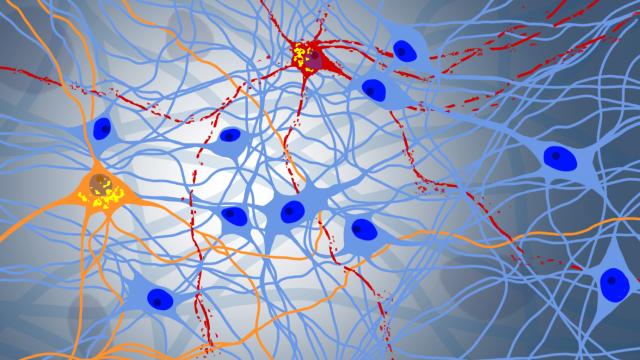 Scientists at UZH have developed an innovative neural cell culture model, shedding light on the intricate mechanisms underlying neurodegeneration. Their research revealed a promising therapeutic target in the treatment of amyotrophic lateral sclerosis (ALS) and frontotemporal dementia (FTD). Mehr 2024-02-21 |
Asexual Propagation of Crop Plants Gets Closer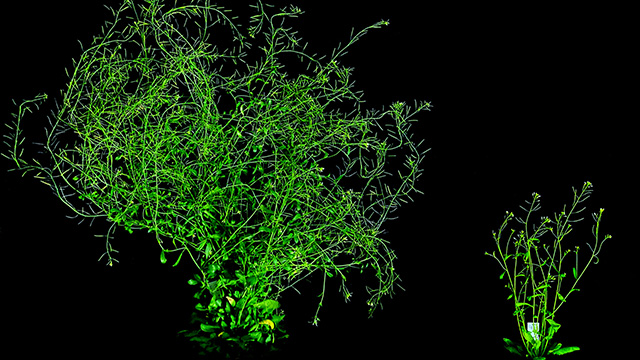 When the female gametes in plants become fertilized, a signal from the sperm activates cell division, leading to the formation of new plant seeds. This activation can also be deliberately triggered without fertilization, which opens up new avenues for the asexual propagation of crop plants. Mehr 2024-02-14 |
Bring colour into the winter: The Food Hub at IrchelDo you want to purchase sustainably produced fruits, vegetables and much more directly at your place of study or work? The Food Hub at Campus Irchel makes it possible. It is offered by the Sustainability Task Force of the UZH Department of Geography. he MNF supports it with a "Make Irchel More Sustainable!" grant. Mehr 2024-02-06 Sustainability Task Force, Department of Geography |
Green Light for LISA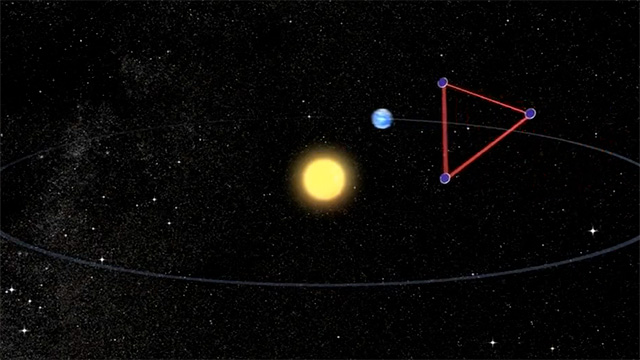 The ESA’s most expensive and complex mission, the LISA space antenna, has reached a major milestone: it has passed the stage of intensive testing by experts in the Mission Adoption Review process. Project member Professor Philippe Jetzer of UZH explains why this is such a significant step for the LISA consortium. Mehr 2024-01-24 Kommunikation UZH & ETH |
Nature Communications by Melika Payvand (INI): Neuromorphic Mosaic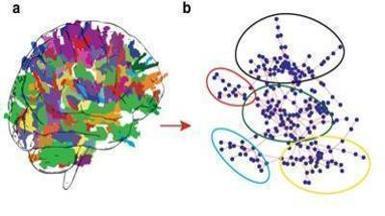 Despite millions of years of evolution, the fundamental wiring principle of biological brains remains preserved... Mehr 2024-01-10 Melika Payvand |
MNF Shark Bay Dolphin Research in SRF Einstein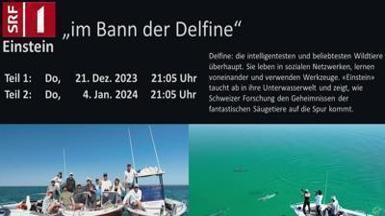 The SRF television program Einstein shows the dolphin research of the Evolutionary Genetics Group. Mehr 2024-01-10 Michael Krützen |
From Lab to Market In the last year, eight new spin-offs were created at the University of Zurich to bring research-based ideas to market readiness. The new companies are developing innovative approaches for the treatment of autoimmune diseases, lead poisoning, blood cancer and endometriosis, the improvement of spinal surgery, better diagnostics in oral health, and simplification of satellite data analysis. Mehr 2024-01-08 Nathalie Huber |
Early Primates Likely Lived in Pairs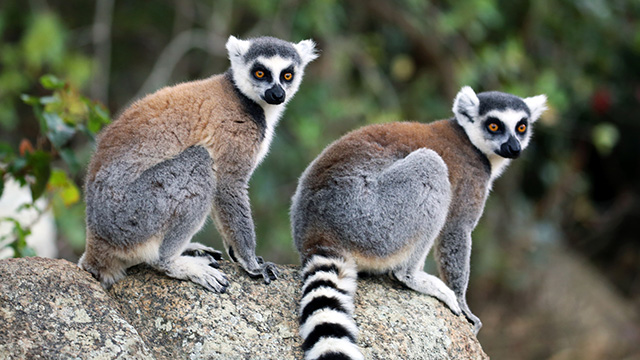 Primate social organization is more flexible than previously assumed. According to a new study led by UZH, the first primates probably lived in pairs, while only around 15 percent of individuals were solitary. Mehr 2024-01-02 |
Database Query
| list of events 2024 |
|---|
Long Nights of Careers The Long Nights of Careers are just around the corner again! Mehr 2024-11-08 Annette Marty |
41st Paul Karrer Lecture and Award Ceremony: Prof. Dr. Katalin Karikó Developing mRNA for Therapy Messenger RNA was discovered in 1961 and it took 60 years until the first mRNA became FDA-approved product in the form of COVID-19 mRNA vaccine. These discoveries led to the development of the COVID-19 mRNA vaccine that has helped to fight the global pandemic and opened the door for developing breakthrough therapeutics for incurable diseases and unmet medical needs. Mehr 2024-06-10 Ramona Erni |
Navigating Unseen Roads: Exploring the Impact of Bias on Academic Women’s Career Trajectories What does it mean for female founders to build start-ups and spin-offs as opposed to their male peers? Do conscious and unconscious bias play a role? A female founder sharing her story after a decade in entrepreneurship. Registration necessary! Mehr 2024-05-10 Christiane Löwe |
MNF Science Photo Contest As part of the Science and Nature Festival, the Faculty of Science is organizing a photo competition. Mehr 2024-04-30 RA |
Science and Nature Festival On Saturday, June 8, 2024 from 12:00-17:00 we celebrate the Science and Nature Festival on the Irchel campus of the University of Zurich. Under the motto "Discover | Explore | Celebrate Diversity", an afternoon full of inspiration, activities and encounters will take place. Mehr 2024-04-29 RA |
Public lecture by Leigh Johnson our Verena Meyer Visiting Professor Public lecture: Digging in the drylands: Valuing labor and landform in nature-based solutions Tuesday, 19 March 2024, 16.00-17.00 Room Y25-H-38 Irchel Mehr 2024-03-17 SP |
Sense of belonging in the working environment Lecture and Panel Discussion "Sense of belonging in the working environment: How diversity research can be transferred into good practice at UZH" (21 March 2024 ) Mehr 2024-02-09 Abteilung Gleichstellung und Diversität |